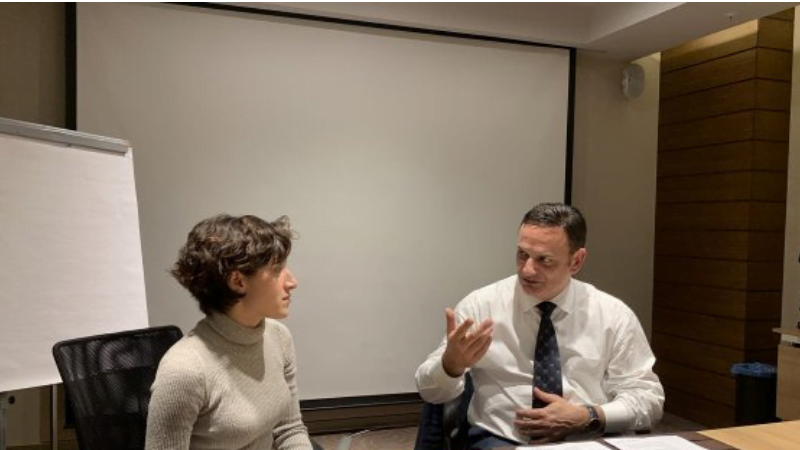Draconian laws and harsh enforcement in Turkey meant that publishing undisputed facts in the public interest can have serious repercussions for journalists, according to Pelin Ünker who is facing jail for exposing corruption at the highest levels of government.
“As journalists this is the reality to which we have become accustomed in Turkey,” Ünker said in a meeting with PN Head of Delegation David Casa.
Casa visited Ünker in Turkey to raise awareness on her case. Ünker is a member of the International Consortium of Investigative Journalists (ICIJ) and was sentenced to 13 months in prison for reporting on the Paradise Papers and links to the former Turkish Prime Minister, Binali Yildririm and his two sons Ekram and Bulent.
She revealed they owned companies in Malta, and now faces an additional case brought against her by the son-in-law of President Recep Tayyip Erdogan.
“The sheer injustice that Pelin and her colleagues are being subjected to is unacceptable in the extreme. We must insist that changes start to take place in Turkey, and that they must start right away,” Casa said, adding that she would be his guest at European Parliament over the coming weeks.
Casa has been vocal on the need to protect journalists, particularly since the murder of Maltese journalist Daphne Caruana Galizia in October 2017. He vowed not to sit back and let journalists be subjected to this kind of appalling treatment. He said the treatment of Ünker was “a huge blow to what was left of media freedom in Turkey”.
Turkey is consistently ranked as one of the worst countries in the world for press freedom with Reporters Without Borders (RSF) referring to the county as ‘”the world’s biggest prison for professional journalists”.
Despite the country’s poor media and human rights record, President Marie-Louise Coleiro Preca met with President Erdogan in January and gave Turkey the backing for its accession to the European Union stating that it would be “sustainable and peaceful” for the region.












